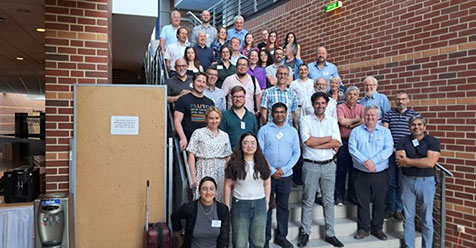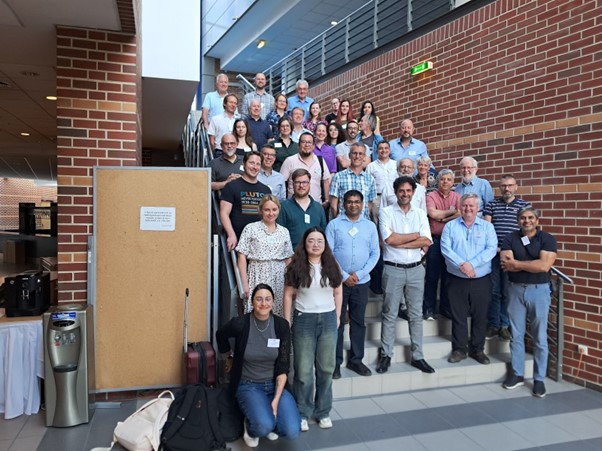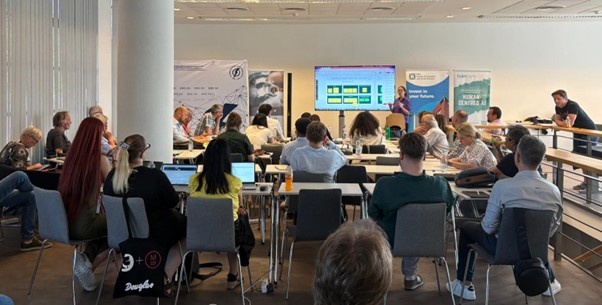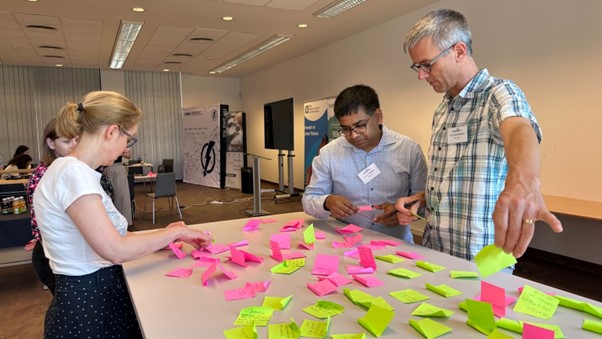BME Hosted a Successful Project Meeting in PANORAIMA

Budapest, July 7, 2025 — The second consortium meeting of the PANORAIMA project took place in Budapest on June 26–27, 2025. This four-year international collaboration brings together university lecturers, researchers, employees of research institutes, and representatives from small and medium-sized enterprises across eight countries. PANORAIMA is conceived as a continuation of the former Human Centred AI Masters (HCAIM) project, aiming to develop a comprehensive master’s and postgraduate training framework. PANORAIMA has been supported by EU’s European Health and Digital Executive Agency under the Digital Europe Programme, in the call DIGITAL-2023-SKILLS-05-SPECIALEDU.
The initiative’s goal is to establish a unified curriculum and degree program in law, health, finance, and communication—focused on human-centred, ethical, and responsible AI applications. A key emphasis of the program is to ensure that, alongside students with ICT backgrounds, those without such expertise also gain essential professional knowledge to foster ethical and responsible AI use. The Departments of Philosophy and History of Science and Business Law at the Faculty of Economic and Social Sciences are participating in the development of the curriculum, and thanks to this collaboration, students can already encounter AI-based educational tasks. The goal is to implement the program developed by the eight countries at our Faculty in the 2026/2027 academic year.

Barry Feeney, Head of School at TU Dublin’s School of Enterprise Computing & Digital Transformation, reflected on the project’s origins: “When the HCAIM project launched in 2021, we recognized that responsible, trustworthy, transparent, and explainable AI was vital for Europe. We must harness AI for the greater good while respecting human rights. Our purpose is to develop technology that benefits people—not to treat them as products or trade their data solely for profit.”
Feeney, HCAIM’s project leader, added, “Graduates from our Human Centred AI programs now come from Budapest University of Technology and Economics (Hungary), HU University of Applied Sciences Utrecht (The Netherlands), University of Naples Federico II (Italy), and Technological University Dublin (Ireland). We are proud to see them working in leading tech companies, pursuing PhDs, and contributing to research and innovation centers, alongside collaborations with government agencies.”

Huib Aldewereld, HU University of Applied Sciences Utrecht, highlighted the critical role of industry and research partners in HCAIM, including CeADAR Ireland, Nathean Analytics (Ireland), ICAR-CNR (Italy), Real AI BV (The Netherlands), the European Software Institute (ESI, Bulgaria), and Fiven (Italy). “Their efforts were instrumental in developing a master’s program tailored for practical application—bringing AI technology to organizations. Through dedicated collaboration, we created real-world project and thesis ideas that meet high academic and industry standards,” he explained.
The Budapest meetings also introduced new partners from Hamburg University of Applied Sciences (Germany), Igor Sikorsky Kyiv Polytechnic Institute (Ukraine), University of West Attica (Greece), and Sofia University St. Kliment Ohridski (Bulgaria). The expanded consortium now includes valuable research and SME partners such as ENEA (Italy) and QTICS Group (Hungary). The event was attended by experts spanning ICT, law, business, philosophy, media, and administration, fostering fruitful collaborations and laying the groundwork for future cooperation.
Zsuzsanna Kuris, representing QTICS Group, said: “In the field of law and compliance, curriculum development provides an opportunity to thoroughly explain the European AI Act and the roles defined therein, and to transfer the expertise necessary for its application. The widespread introduction of the AI Regulation will create new jobs not only for companies and professionals developing and applying AI-based solutions, but also for organisations and authorities that verify and certify the compliance of AI applications.”

In addition to curriculum development, participants worked in parallel groups on project marketing and communication strategies.
Regarding project goals, Huib Aldewereld explained that the aims are to develop over 150 new learning events, reaching over 500 new students in the following years. Moreover, several self-standing modules are to be developed to reach over 300 working professionals. He added: “We are in this for the long run–through expanding our community with more universities, research centres and SMEs, we hope to establish a strong basis for Human-Centered AI teaching and research across Europe”.
Overall, the program aims to generate value not only for students but also for educators, industry partners, and companies through collaborative knowledge development.



